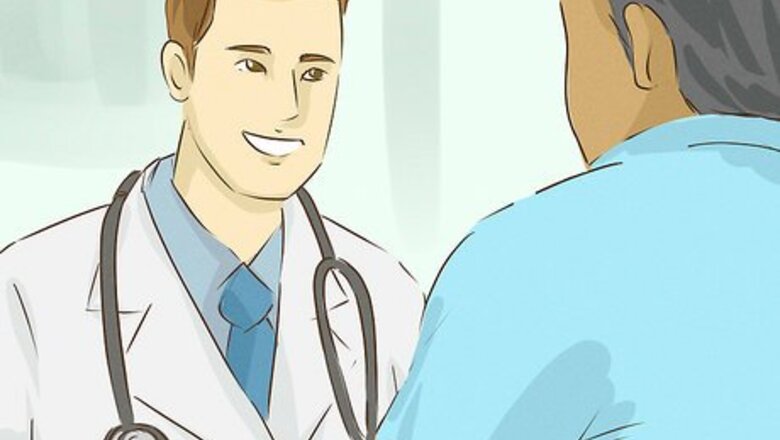
views
Discussing the CT Scan With Your Healthcare Providers
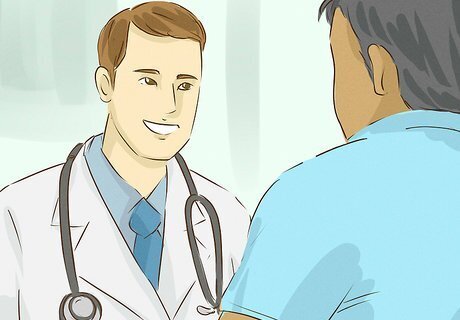
Ask your doctor if there are any special instructions you should follow. Depending on the reason for the scan and your current medical condition, your doctor may provide you with some special instructions. These might include restrictions to what you can eat and drink, modifications to your activity level before or after the test, or changes to your medication schedule. You may receive a sheet with instructions. If so, make sure to read it carefully and ask your doctor if anything is unclear or does not make sense to you.
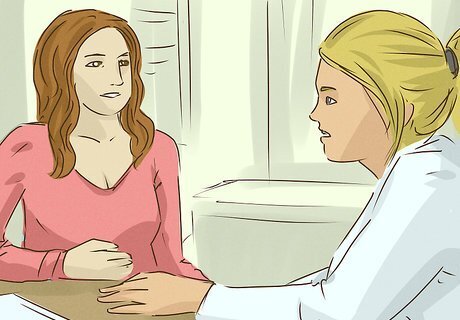
Tell your doctor if you think you might be pregnant. CT scans expose you to a small amount of radiation, which is unlikely to cause you or an unborn baby any harm. However, it is best to err on the side of caution since an unborn baby may be more susceptible to the radiation. Let your doctor know if there is even a chance that you might be pregnant. You can simply say, “There’s a chance I could be pregnant.” Your doctor may order a pregnancy test to confirm whether or not you are pregnant before going forward with the CT scan. If you are pregnant, you may need to have a different imaging test, such as an ultrasound or an MRI.
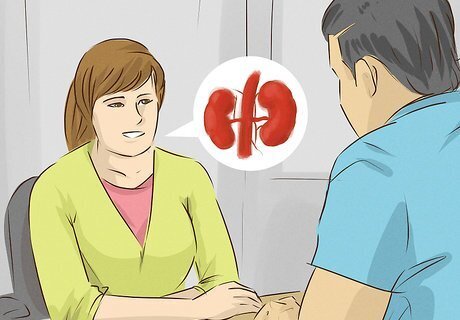
Alert the CT scan technician of any kidney function problems you have. If you have problems with your kidney function, such as kidney disease or a kidney infection, then you may not be able to get a CT scan with contrast dye. This is because your kidneys might have trouble clearing the contrast material. Instead, you might need to have a CT scan without contrast dye or have a different test. You should also tell the doctor if you're having trouble urinating or emptying your bladder, or if you have frequent UTIs. They may decide that a CT scan with contrast dye is not right for you.
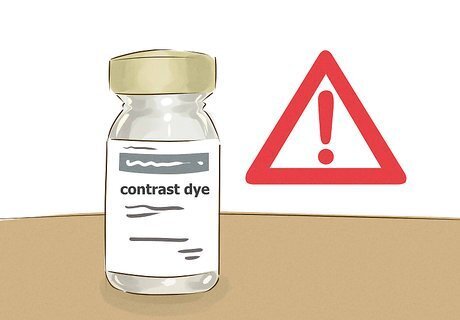
Tell the technician if you are allergic to the contrast dye. Allergies to contrast dye may also mean that having a CT scan with contrast is not the best option for you. You could have an allergic reaction to the contrast material that could be life-threatening depending on how severe your allergy is. In most cases, the contrast dye will be iodine that's administered via IV. If you're allergic to iodine, you need to tell the doctor before they administer it, as you won't be able to use that dye.
Following Food, Drink, and Medication Precautions
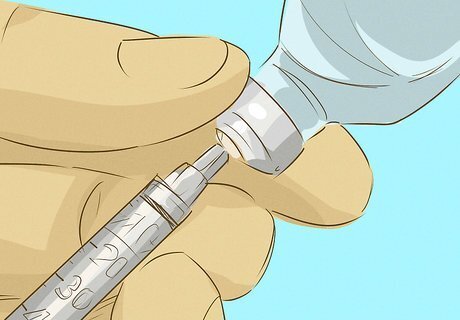
Drink the contrast material if you are instructed to do so. The contrast dye may be introduced into your system via injection, enema, or, more commonly, as a solution that you have to drink. If you are instructed to drink a contrast dye solution, drink the entire container in the time allotted. You will usually be told how much time you have to finish drinking the solution, so you can pace yourself. The contrast dye solution tastes similar to a flavored sports drink.
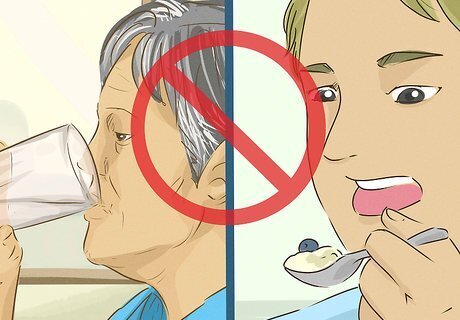
Do not eat or drink anything 3 hours before a contrast CT scan. Other than the contrast dye solution that you are instructed to drink, you should not eat or drink anything else in the 3 hours leading up to your CT scan. Doing so may interfere with the results of your scan. You may eat and drink as usual leading up to a CT scan without contrast. If you have diabetes, then you will be given very specific instructions on when to eat and drink. You will most likely need to have a light breakfast or lunch 3 hours before your CT scan.
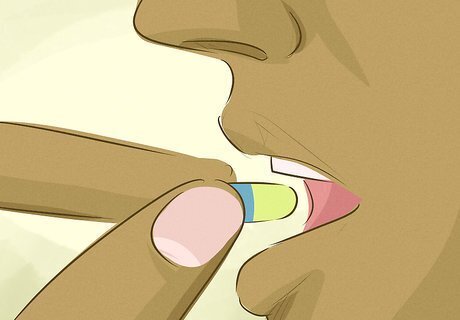
Take your prescribed medications as you normally would. Most people can continue to take their prescribed medications as usual on the day of the CT scan and following the CT scan. If you are unsure about whether or not it is okay to take a medication prior to or after a CT scan, ask your doctor. If you have diabetes, you may receive special instructions regarding your medications, such as changes to your medication schedule. Talk to your doctor before you leave the medical facility and follow their instructions exactly.
Preparing Yourself Physically for the Scan
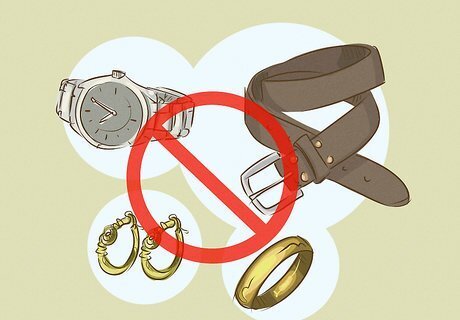
Remove any jewelry and any other metal objects. It is important to remove any metal objects from your body before the CT scan because they can interfere with the results. Take off any jewelry that you have on as well as eyeglasses, belts with metal buckles, and other accessories. You may even want to leave these items at home to avoid the possibility of losing your valuables.

Put on a hospital gown. Take off your clothing as instructed and put on a hospital gown in its place. This will also help to ensure that there are no metal clasps or other metal pieces that might interfere with the CT scan images. You should be provided with a locker or other area to place your clothing until after the scan.
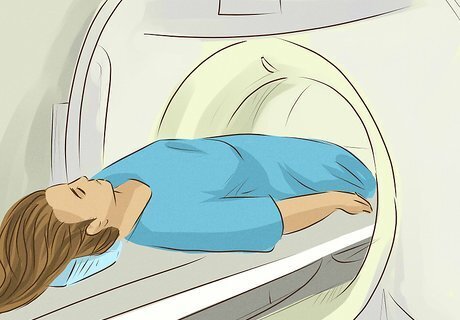
Lie down and stay still during the scan. CT scans are not painful and they are usually quite quick. However, it is important for you to be very still during the scan to ensure that the images will be as clear as possible. Lie down on the CT scanner table as instructed by the technician and stay very still during the scan. You might need to lie on your back, on your side, or on your stomach depending on the focus of the scan. Your head may need to be strapped into a special cradle to keep it still during the scan. This should not be painful, but it might feel a little uncomfortable or awkward.
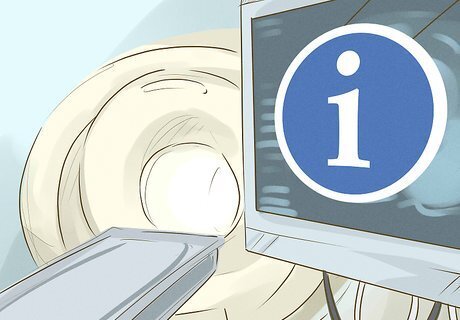
Listen for additional instructions during the scan. The technician will be able to speak to you through an intercom to give you additional instructions as needed. Listen for their voice in case you need to move into a different position or hold your breath. Keep in mind that the technician can also hear you through the intercom, so you can talk to them if you need to. While you're undergoing your CT scan, you'll also have a buzzer that you can use to alert the technician if you feel like you're starting to panic. If you have any issues, the technician will help you.

Drink plenty of water after the scan. If you have a CT scan with contrast dye, you will need to drink at least 5 glasses of water after the scan so that your body can flush out the contrast material. Otherwise, you should be able to eat and drink as you normally would. Check with your doctor for specific aftercare instructions.

















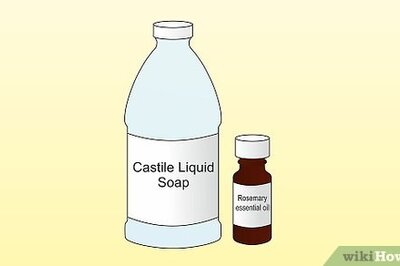


Comments
0 comment